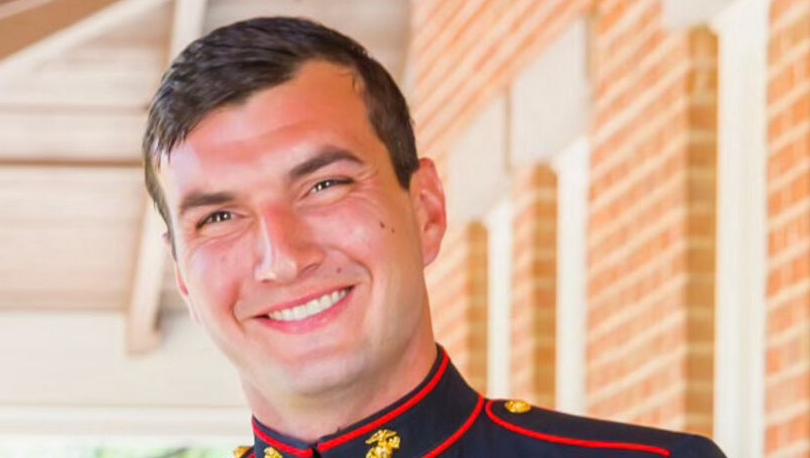One of two men detained in the investigation of the killing of a Tucson man on a highway in Sonora has been indicted for homicide, Sonora officials said.
The man, identified only as Francisco Federico, was charged with “qualified homicide” and criminal association in the Oct. 18 death of Nick Quets, 31, and attempted qualified homicide against Quets’ two passengers, who were unharmed in the shooting, the Sonora Attorney General’s Office said Tuesday in a news release
Under Mexico’s penal system, a homicide is “qualified” if it’s premeditated and if the alleged perpetrator has an advantage over the victim, such as if they used a weapon, a spokesman said.
Quets, a U.S. Marine Corps veteran, was gunned down while driving through a dangerous part of northwest Sonora, near Altar. Quets was heading to Rocky Point with friends, after having crossed into Mexico through Nogales.
Sonoran state officials also revealed more details about what happened to Quets, and clarified that Quets’ vehicle was initially attacked while driving west on Sonora Highway 43, east of where it intersects with Federal Highway 2 in the town of Altar.
The attack came after Quets, who was driving his 1996 Ford F-250, did not stop at an unauthorized highway checkpoint, manned by an armed group, a state official said.
Quets fled from the initial gunfire on Highway 43 and his vehicle made it to Highway 2, just west of Altar, the Sonora AG office said. But the criminal group pursued him and caught up with him there.
“The victims managed to avoid the initial impacts by crouching down, but they were hit (on) the Altar-Caborca highway, in front of a tire store. There, the attackers fired multiple detonations that hit the vehicle, causing it to crash into the retaining wall,” the AG office release said. “When the vehicle driven by Nicholas Douglas Quets stopped moving, the attackers, following orders from another subject, shot (Quets), who died at the scene due to gunshot wounds.”
Quets’ family told the Star he was shot from behind while in the drivers’ seat and was struck in the heart. His two companions, who were Mexican nationals, were uninjured, they said.
The Sonora AG office “will continue with the investigations to establish the responsibility of the others involved and bring them to justice,” the press release said. The office “reiterates its commitment to act firmly against highly dangerous crimes and criminal association, working to guarantee the safety of citizens and justice for victims.”
Quets’ family says they’re angry with what they say has been insufficient responsiveness from U.S. authorities following the Oct. 18 shooting and they want U.S. law enforcement directly involved in the investigation in Mexico, and suspects extradited to the U.S. for trial.Both President-elect Donald Trump and vice president-elect JD Vance highlighted Quets’ deaths in campaign rallies last month.
Mexico’s Federal Highway 2 and Highway 43, where Quets was initially attacked, both pass through a volatile region of northwest Sonora that been embroiled in territorial battles between warring factions of the Sinaloa Cartel since last fall.
The U.S. State Department says its employees cannot travel in the area where Quets was killed. That off-limits the “triangular region” spans west from the Mariposa U.S. Port of Entry; east of Sonoyta, Sonora; and north of Altar, Sonora, on Highway 2.
The State Department only recommends traveling to Rocky Point via Federal Highway 8, from Sonoyta, across the U.S.-Mexico border from Lukeville.
Quets’ killing is the second time in the past year that a U.S. resident or citizen has been fatally shot on Highway 2 after reportedly failing to stop at an illicit checkpoint. In a third incident in August, two Arizona women, one a U.S. citizen and one a legal permanent resident, were killed on a different stretch of this same highway, heading to Caborca from the Lukeville port of entry.
The state Department’s general travel advisory for Mexico includes a warning about unofficial checkpoints, advising travelers to stop and cooperate no matter what.
“In some parts of Mexico, criminal organizations and other non-governmental actors have been known to erect unauthorized checkpoints and have abducted or threatened violence against those who fail to stop and/or pay a ‘toll,’” the advisory says. “When approaching a checkpoint, regardless of whether it is official, cooperate and avoid any actions that may appear suspicious or aggressive.”





